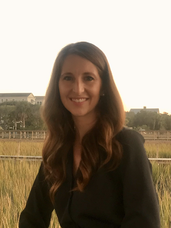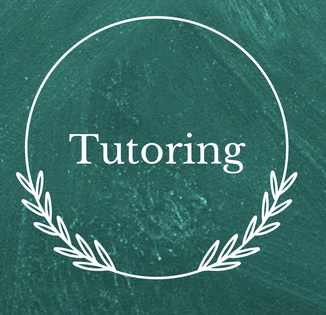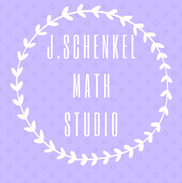Jessica Schenkel

Jessica Schenkel is an upper school math teacher in Charleston, SC. She started her career in the Berkeley County school District working at Stratford High School for two years (2008-2010). The following nine years she taught at Porter-Gaud School in Charleston, SC (2010-2019). She taught AP Calculus BC all nine years at Porter-Gaud and rotated between teaching Algebra I, Algebra II, and Honors Algebra II/Trigonometry for the first six years. She started teaching the course outlined on this website, FST (Functions, Statistics, and Trigonometry) in 2015 as an alternative to a traditional precalculus course. In 2016, she assumed the role of Department Chair of the Mathematics Department at Porter-Gaud, which gave her a unique vantage point as she had the opportunity to work with mathematics teachers from first through twelfth grades. She is passionate about mathematics education and has designed this website to share educational resources with other educators. She moved to North Andover, MA in 2019 to work at Brooks School. She taught Precalculus, AP Calculus BC, and Algebra II, was a dorm parent in Hett East, and co-advised the Student Activities Team. She spent a wonderful two years there, but ultimately decided to move back to Porter-Gaud in 2021 and resume her position as the Mathematics Department Chair and teach upper school math. Jessica teaches at the Anja S. Greer Conference at Phillips Exeter Academy in June each summer. If you are interested in taking a deeper dive into these materials, the Anja S. Greer Conference is a great opportunity to learn more.
Services

Jessica offers virtual tutoring services for students in any course from Prealgebra to AP Calculus BC. She can also assist students with ACT and SAT preparation. Students and families can schedule sessions on a weekly basis or intermittently when needed.
Email Jessica at jessica.schenkel35@gmail.com to inquire about availability, rates and schedule your session. The 2022-2023 school year calendar fills up quickly so don't delay to reserve your spot!
Email Jessica at jessica.schenkel35@gmail.com to inquire about availability, rates and schedule your session. The 2022-2023 school year calendar fills up quickly so don't delay to reserve your spot!

Jessica offers personalized, in-person workshops for mathematics departments. If you are considering using these alternative to traditional Precalculus resources in a new course at your school, a workshop will be invaluable for the course instructors. A workshop will enable your department to take a more in depth look at the materials and how to use them to engage students and maximize learning.
Jessica also offers workshops for mathematics departments with individual needs. Whether your department has a large number of young teachers that need extra support or your department needs help aligning curriculum and choosing resources that are best for your school, Jessica can help design a meaningful workshop that unifies departments and prepares teachers for the upcoming school year. All workshops are scheduled to run in June and July.
Email Jessica at jessica.schenkel35@gmail.com to inquire about availability, rates and start planning your workshop for the summer of 2023.
Jessica also offers workshops for mathematics departments with individual needs. Whether your department has a large number of young teachers that need extra support or your department needs help aligning curriculum and choosing resources that are best for your school, Jessica can help design a meaningful workshop that unifies departments and prepares teachers for the upcoming school year. All workshops are scheduled to run in June and July.
Email Jessica at jessica.schenkel35@gmail.com to inquire about availability, rates and start planning your workshop for the summer of 2023.
About the Course
For years I watched my school offer an Algebra 3 course for students who struggled in Algebra 2 the previous year. It was a decent option for those students as they needed a year to build confidence and revisit many of the requisite skills and concepts that are needed to be successful in any upper level secondary mathematics course. However, it was painful for all involved. The students felt like they were being punished - essentially taking another year of Algebra 1/2 and not moving into Precalculus with their friends in their class. They usually lacked motivation and it was difficult for the teacher to inspire these students with the curriculum. We knew there had to be something better, but we didn't know what. In 2015 I applied for a faculty grant that is sponsored by the Parents Guild of Porter-Gaud School and they awarded me money to go to the Anja S. Greer conference on Mathematics and Technology. (If you're looking for a professional development opportunity this is one of the best). It was there that I met Nils Ahbel after he presented on his Alternative to Precalculus course resources. We weren't able to offer the new course in the 2015-2016 school year, but we presented a new track in our overall program that includes a course called Functions, Statistics, and Trigonometry (FST) with additional branches to College Algebra, Probability and Statistics, and Discrete Math as senior semester elective options. We are in our third year of offering the FST course and the benefits are extraordinary. As a math teacher, it is rare to have the freedom to let the students guide your instruction and this curriculum allows me to do that. I love seeing my students gain confidence and excel in an area they've never felt they belonged. I love seeing their intellect be noticed and rewarded within the walls of the "math wing." Most of all, I love seeing my forty to forty-five students succeeding in their senior Precalculus, AP Statistics, or semester electives with a new appreciation for mathematics and its uses. This year a graduating senior wrote, "Thank you Mrs. Schenkel for giving me confidence in myself that I am not stupid and I can do math - it means more to me than you will ever know." While I'd love to take all the credit, I believe its the spirit of the course and the dynamic curriculum that lends itself to help educators recognize their student's intellect and allow them to use math in a way they believe is interesting and useful.
-Jessica Schenkel
CREDITS
The University of Chicago School Mathematics Project (UCSMP) started in 1983, led by the longest serving director of the project, Zalman Usiskin. The project brought together authoring teams who wrote mathematics textbooks for grades K-12. From 1991-1995, Nils Ahbel (then working at Kent School) was on the authoring team for second editions of three UCSMP textbooks: Advanced Algebra, Functions, Statistics, and Trigonometry, and Precalculus and Discrete Mathematics. While working for UCSMP, Nils gained invaluable experience from the guidance and mentoring of Sharon Senk, Steven Viktora, and Zalman Usiskin. In 1998, Nils began teaching at Deerfield Academy where he taught with the UCSMP, Functions, Statistics, and Trigonometry (FST) textbook. With the knowledge and blessing of Zalman Usiskin, Nils began rewriting FST to be a virtual, open-content (free) textbook, based on the USCMP text, but with new math topics, problem sets, data sets, PowerPoints, instructional videos, and projects. In 2004 and 2006, Gloria Barret of the North Carolina School of Science and Mathematics, was the Wilson Fellow at Deerfield Academy. During both those school years, Gloria edited all of the materials in Nils’ version of FST and greatly improved the course, particularly in the area of statistics. In 2013, Lauren Nelson worked with Nils as both an editor and author, focusing on improving content in Bivariate Data Analysis, Modeling with Trig Functions, and Probability. In 2018, Nils asked Jessica Schenkel of the Porter-Gaud School, to take over as editor and author of these materials. Many of the word and pdf documents created and/or updated for unit lessons were created by Torie Kuchler, currently teaching at Porter-Gaud School. Marc Dancer (Deerfield Academy) also contributed many activities - especially in the Normal Distrubition Unit.
